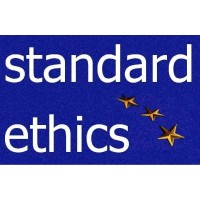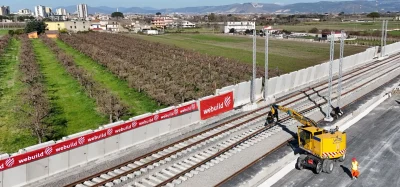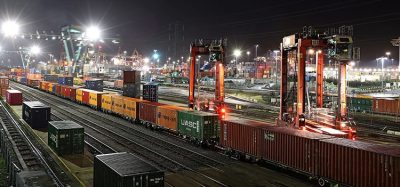Standard Ethics publishes study on European rail infrastructure
Posted: 21 December 2023 | Emily Budgen | No comments yet
Standard Ethics have published a new study on the European rail infrastructure management industry, focusing on sustainability.


Standard Ethics has published the study ‘Making tracks towards Sustainability: an overview of the European rail infrastructure management industry’. The aim of the study is to provide an overview of the level of Sustainability achieved by the leading rail infrastructure managers in the European Union and in a number of non-EU countries such as Norway, Switzerland and the United Kingdom.
The analysis, conducted by Standard Ethics, looked at the largest operator in each EU member state
(excluding Cyprus and Malta, which have no railway lines) and the largest operator in three of the major non-EU countries such as Norway, Switzerland and the United Kingdom. The sample comprises a total of 28 companies: 25 companies from the 27 EU countries and 3 non-EU operators (Norway, Switzerland and the United Kingdom).
The study was based on four ‘questions’ that can be summarised as follows: i) whether gender equality has been achieved at senior management and Board level; ii) whether a gender ‘equality’ policy is in place; iii) whether a public commitment linked to specific environmental objectives has been made; iv) whether an Artificial Intelligence policy has been introduced.
- The following key points emerge from the study:
about 35% of the sample has achieved gender equality at senior board level (such as in the Board of Directors) - none of the companies analysed publishes and adopts a gender equality policy and only 12% (3 out of 26 companies) address gender balance or adopt a Diversity and Inclusion Policy
- 42% of companies communicate their commitment to specific environmental targets
- no company has published an Artificial Intelligence policy
In conclusion, this study illustrates that, despite some promising initiatives and ongoing attempts to comply with many of the criteria that define sustainability, there are still many tracks to cover if European rail infrastructure managers are to become more sustainable and in line with the international guidelines set by the United Nations, the OECD and the European Union. There are several challenges the sector has yet to face, such as: better disclosure and quality of ESG documentation; a shift from the notion of ‘balance’ to that of ‘equality’ where gender policies are concerned; consideration of Artificial Intelligence not only as an innovative technology, but also as something that has an impact on ESG themes. Environmental challenges are those that appear to be the better addressed through more environmentally conscious management policies, electrification of railway lines and the use of innovative materials.
More Like This
Government sets ambitious target to grow rail freight
RAIB Report: Freight train derailment at London Gateway
Global Centre of Rail Excellence collaborate with Getzner
Related topics
Related organisations
European Union (EU), OECD, Standard Ethics, United Nations (UN)







